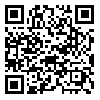Volume 8, Issue 1 (Spring 2022)
JMIS 2022, 8(1): 26-35 |
Back to browse issues page
Download citation:
BibTeX | RIS | EndNote | Medlars | ProCite | Reference Manager | RefWorks
Send citation to:



BibTeX | RIS | EndNote | Medlars | ProCite | Reference Manager | RefWorks
Send citation to:
Roshanzadeh M, Tajabadi A, Mazhari Dehkordi B, Mohammadi S. Investigating the Role of Internet Addiction in Predicting Academic Procrastination in Nursing Students. JMIS 2022; 8 (1) :26-35
URL: http://jmis.hums.ac.ir/article-1-344-en.html
URL: http://jmis.hums.ac.ir/article-1-344-en.html
Department of Nursing, Faculty of Nursing, Shahrekord University of Medical Sciences, Shahrekord, Iran.
Abstract: (1425 Views)
Objective: Nursing students deal with psychological stress due to exposure to the hospital atmosphere and contact with patients; hence, they are more prone to harms. It is necessary to investigate their academic and mental health problems, including addiction to Internet, and its relationship with their academic procrastination. Therefore, the present study aims to determine the role of Internet addiction in predicting the academic procrastination in nursing students.
Methods: This descriptive cross-sectional study was conducted in 2018 on 392 nursing students at Shahrekord University of Medical Sciences who were selected by quota sampling method. A demographic information form, Young's Internet Addiction Test (IAT), and Solomon and Rothblum's academic procrastination questionnaire were used to collect data. Data were analyzed in SPSS v. 16 software using descriptive statistics (mean, standard deviation, frequency, and percentage) and analytical tests (t-test, analysis of variance, regression analysis, Pearson correlation test).
Results: Pearson correlation test results showed a positive and significant relationship between Internet addiction and academic procrastination (P<0.05). Regression analysis results showed that all dimensions of IAT (adjusted R2= 0.186) significantly predicted academic procrastination. The non-standardized beta value showed that the shares of low time control/management and salience/neglect of social life in predicting academic procrastination were 2.14 and 2.018, respectively. The mean scores of IAT and academic procrastination were reported 20.69±2.81 and 64.4±2.48, respectively.
Conclusion: Considering the roles of poor time management and neglect of social life in predicting the nursing students' academic procrastination, their importance should be emphasized to the parents and students. Screening students for academic problems and procrastination and identifying the related factors as well as increasing students' awareness and skills to manage time and improve social relations should be considered.
Methods: This descriptive cross-sectional study was conducted in 2018 on 392 nursing students at Shahrekord University of Medical Sciences who were selected by quota sampling method. A demographic information form, Young's Internet Addiction Test (IAT), and Solomon and Rothblum's academic procrastination questionnaire were used to collect data. Data were analyzed in SPSS v. 16 software using descriptive statistics (mean, standard deviation, frequency, and percentage) and analytical tests (t-test, analysis of variance, regression analysis, Pearson correlation test).
Results: Pearson correlation test results showed a positive and significant relationship between Internet addiction and academic procrastination (P<0.05). Regression analysis results showed that all dimensions of IAT (adjusted R2= 0.186) significantly predicted academic procrastination. The non-standardized beta value showed that the shares of low time control/management and salience/neglect of social life in predicting academic procrastination were 2.14 and 2.018, respectively. The mean scores of IAT and academic procrastination were reported 20.69±2.81 and 64.4±2.48, respectively.
Conclusion: Considering the roles of poor time management and neglect of social life in predicting the nursing students' academic procrastination, their importance should be emphasized to the parents and students. Screening students for academic problems and procrastination and identifying the related factors as well as increasing students' awareness and skills to manage time and improve social relations should be considered.
Keywords: Time management, Interpersonal relations, Internet Addiction, Academic procrastination, Nursing students
Type of Study: Research |
Subject:
General
Received: 2021/09/5 | Accepted: 2022/04/9 | Published: 2022/04/1
Received: 2021/09/5 | Accepted: 2022/04/9 | Published: 2022/04/1
Send email to the article author
| Rights and permissions | |
 |
This work is licensed under a Creative Commons Attribution-NonCommercial 4.0 International License. |








 hums.ac.ir
hums.ac.ir